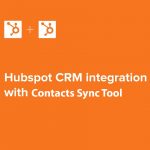How partners should adapt to Microsoft’s integration strategy
I was watching the keynote speech by Jim Harrer at Integrate 2016 and it was great to see what they are up and what was coming up. It was even more interesting to see him to choose his words in a few places, probably trying to alleviate the inevitable anxiety most of the audience is/was likely to go through. I think most partner would interpret “simpler” with shrinking business.
Like my own company, most partners I talk to are focused on B2B Integration scenarios. Most scenarios require complex setup, design and control. I presume that they, like me, sometimes step back at end of the projects and wonder at the triviality of what you just achieved with all that complexity. I think if I look back the last decade or so, “simplification of IT” appears to be a consistent trend. You can do a lot more with the tools today in a lot less time than you could back in the days of 3 tier web apps. Atleast part of that has been about enabling business to do it themselves. In recent times, the shift on the BI side from SSRS to user-driven reporting is a clear example of this.
On the integration side, this has been a long time coming but I think few consulting firms, especially those focused exclusively on the Microsoft stack, are ready for the change that is coming. Here is how we are adjusting, and I think how most consulting partners should react
- Productize. With tools like flow, the overall system will move towards canned, easy-to-access, commonly used integration problems. If you look at other sectors, if this catches on, it will cover 50-60% of the customers integration problems. Firms will need to get noticed in these marketplaces. The problem is most consulting firms I talk to don’t have product development in their DNA. The switch from Consulting firm to Product is not an easy one. The risk appetite, Cashflow discipline, Marketing orientation/skill set etc are all fundamentally different for product firms.
- Go wide. Learn a lot more technologies. IoT, Big Data, Open source.. etc have typically not been part of the skill set of integration teams. As it becomes “easier” to Integrate, customers will expand the scope of what that means and entails. E.g. Integrating devices vs. integrating applications vs. integrating data (which used to be very different beasts) will merge into one. For consulting firms, this will mean either increased training expense and/or the need to develop strategic partnerships with other firms focused in those areas.
- Low cost models of execution. Whichever way you want to say it, the overall size of the projects (man-hours) will shrink. The broad set of skills required may also mean that the acquisition of this talent will be at a higher price point and with customer expecting “simpler” solutions, the bill rates will likely also come under pressure. It may become simpler to do some things but I think for the next year or so, the cost of learning how to do it will offset any advantages gained from doing it faster (at least for consulting firms). Given all this, it may be prudent to have another look at operating costs: reduce bench costs, move to cheaper talent markets etc… I still see companies with no offshore presence. As biased as my opinion is, this desire to not be operationally efficient still baffles me.
- Constant change. They are gearing to churn out an adapter every 2 weeks! whoa! This magnitude of change is not native to developers used to un-changing system specifications. They will need to learn to adopt to a platform that is constantly evolving. This will have implications on cost of training/learning for a resource/year, scheduling commitments on projects (which will in turn impact pricing models).
The change is coming, however I think we are talking several years before it takes hold with customers. Much of what I talked about above are also things that take many months/years to work out.
My friends tell me I am a pessimist but I hope (with that discounted), this still gives you some food for thought. Would love to hear how some of you interpreted this session and what you are doing to ready yourselves for future change?







